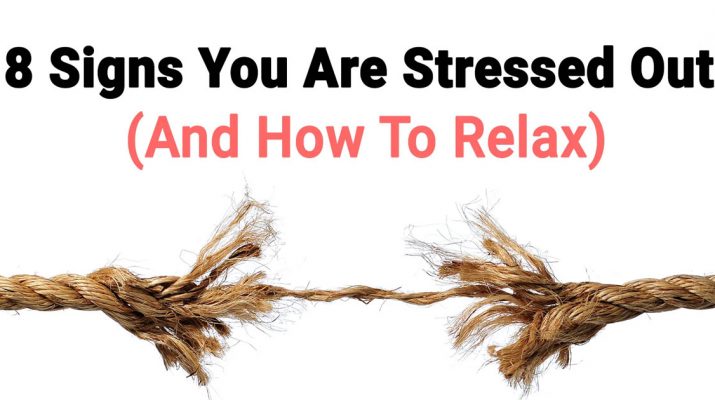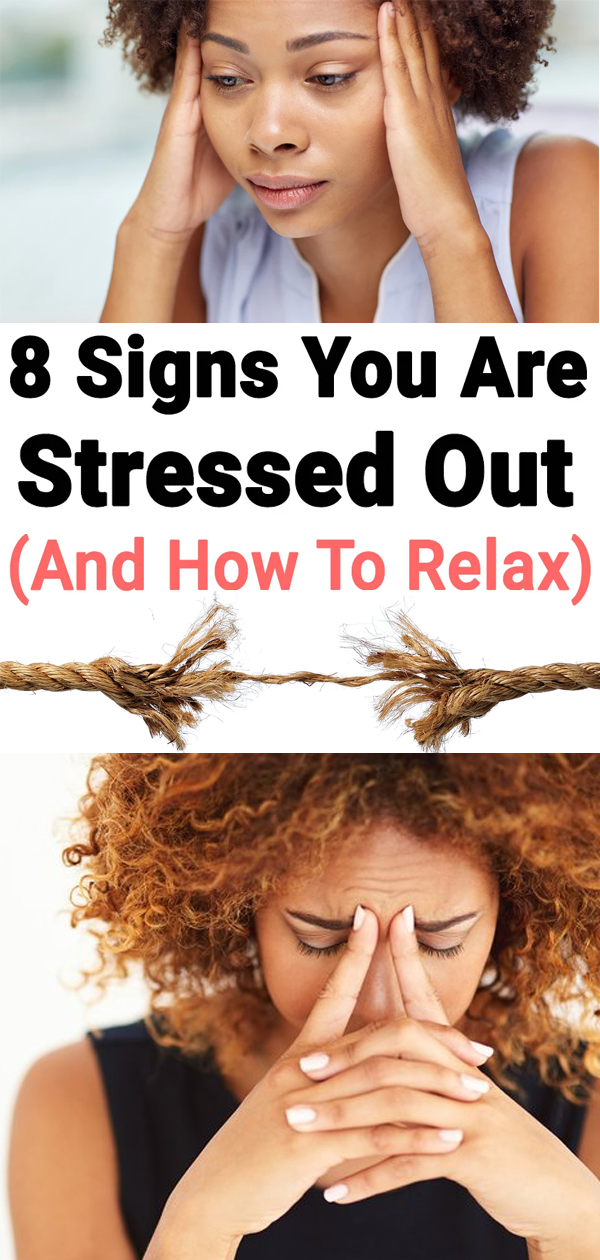The fact that we have an organization called The American Institute of Stress just to help us understand and cope should be a dead giveaway to how stressed out most of us are. Definitions of stress vary, and so do the different kinds of stress. Some kinds, such as making positive changes in our lives or learning new skills, can be good for us. Others, like worrying over a job or about an illness, can be debilitating.
We live in stressful times, and we have little control over many situations. How can we put our stress into perspective and find stress relief techniques? Around 2,000 years ago, the Greek philosopher Epictetus summed it up this way: “It’s not what happens to you but how you react to it that matters.” One of the best ways to deal with stress is to change the way we look at things. Another is to recognize its signs and nip it in the bud before it takes over our lives.
Eight Signs That You Are Stressed Out
1. You Get Sick A Lot, And The Illnesses Stick Around.
The American Psychological Association says that three out of four people experience physical problems caused by stress. When we have stressed out our bodies work overtime to release cortisol, a hormone that is helpful when we’re being chased by a tiger but harmful when we stay in a constant state of “fight or flight.” Too much cortisol weakens our immune systems and makes us more likely to get sick. A change in the way you view stress, along with habits like meditation and exercise, usually helps.
2. You Have Trouble Sleeping At Night.
When we’re stressed out during the day, we get into a state of arousal that makes it hard to fall asleep at night. When we can’t sleep at night, we get even more worked up. Of course, that leads to more stress the next day, and the cycle continues. It helps to develop a relaxing bedtime ritual and avoid caffeine or other substances that could keep you awake.
3. You Have A Headache Almost Every Day.
If you’re having pressure or pulsing pain around your temples or scalp, you might be having tension headaches. Although they are uncomfortable, they are usually different from the severe symptoms caused by migraines. Try to find ways to relax your neck and scalp muscles to relieve the pain.
4. You Can’t Think Clearly.
If you aren’t sleeping well, there is a good reason you can’t concentrate, but there may also another cause. Research shows that the brain’s memory center, the hippocampus, shrinks when it is overwhelmed by cortisol, and this may even be related to dementia later in life. Mindfulness and deep breathing exercises are good stress relief techniques.
5. Your Mood Changes And It Affects Your Personality And Libido.
Anxiety might make you feel overwhelmed, moody, or depressed. If you find yourself doubting your abilities or avoiding other people, stress is probably interfering with your emotional health. Your libido might also suffer. Try to identify and eliminate as much stress as possible and see a doctor to rule out physical problems. Communicate with your partner and stay in touch with friends.
6. Your Behavior Changes.
Anxiety can make it hard to get things done. You may procrastinate or feel overwhelmed by responsibilities, or you may bite your nails, have trouble being still, or move from one activity to another without finishing anything. When you relax, your nervous behaviors should return to normal.
7. You Drink Too Much Or Abuse Other Substances.
Taking a drink of alcohol can be a relaxing way to spend time with friends, but it just makes stress worse when it gets out of hand. Instead of turning to alcohol, drugs, or cigarettes, call a friend, go to a movie, or take a walk. Nature can be healing.
8. Your Neck Is Killing You.
The old expression about a “pain in the neck” explains a lot. We all tend to tense our shoulder and back muscles when we get stressed out or tired. This alone can lead to painful muscle spasms, but it gets worse when inactivity or poor posture complicates the stress reaction.
Final Thoughts
Stress has many causes, and it takes work to create a healthier lifestyle. We can start by eating a good diet, exercising regularly, and engaging in stress relief techniques like yoga, meditation, or listening to uplifting music. Studies have shown that taking the time to write about our feelings, even if we throw what we write away, can make us happier and more relaxed.
It is also important to get enough sleep, avoid stimulants, and avoid taking on more responsibilities than we can handle. Remember that the way we see things determines how stressed out we are.


